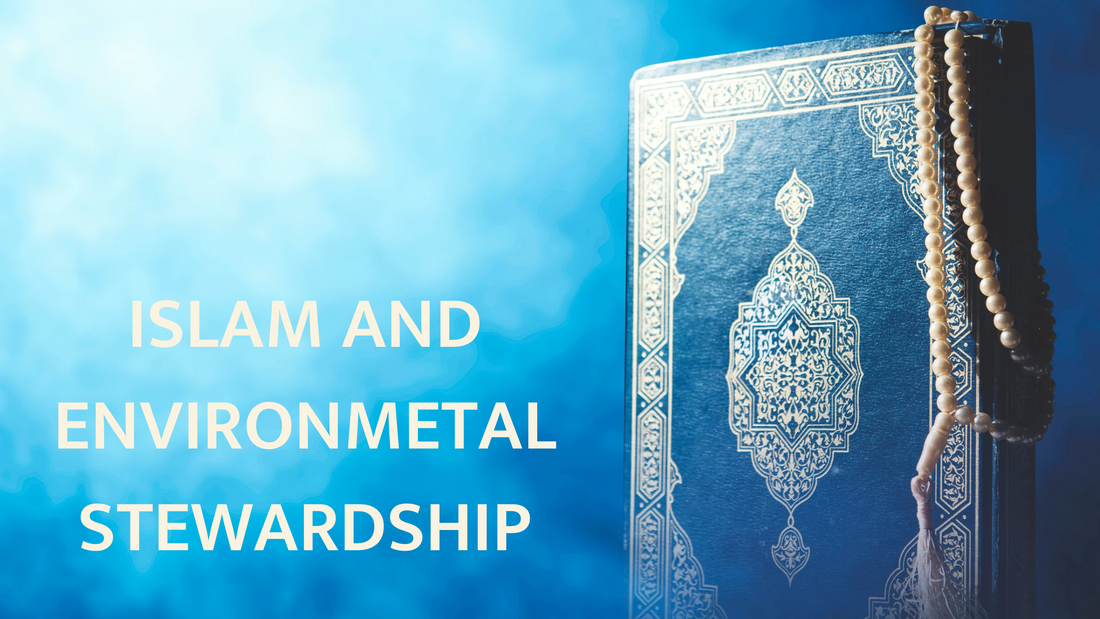When we think about environmentalism, the Quran and Hadith should be the first sources that come to mind. As Muslims we believe we have been sent to this Earth as stewards: Khalifatul Ardh, and it is our responsibility to look after the planet. Quran and Hadith offer profound guidance on how Muslims can and should interact with the natural world. In a time when our planet faces significant environmental challenges, the teachings of Islam provide timeless wisdom on caring for the Earth.
The Quran on Nature and Stewardship
The Quran has many verses that highlight the beauty and importance of nature. It frequently urges believers to reflect on the natural world as a sign of Allah’s creativity and omnipotence.
“And the Earth, We spread it out, and cast therein firmly set mountains and We have made to grow therein (something) of all beautiful kinds, giving insight and a reminder for every servant who turns (to Allah).” [50:7-8]
One of the central concepts in the Quran regarding the environment is that of "khalifa," or stewardship. Surah Al-Baqarah (2:30) mentions how humans are appointed as stewards on Earth: "Indeed, I will make upon the Earth a successive authority." This role is not to dominate but to protect and nurture the planet, acting as responsible caretakers.
The Quran also explicitly warns against corruption and wastefulness. Surah Al-A'raf (7:31) advises, "Eat and drink, but be not excessive. Indeed, He likes not those who commit excess." This principle can be directly applied to modern issues like overconsumption and environmental degradation.
There are 6 chapters in the Quran that is named after animals or insects: Al Baqarah (The Cow), Al Anaam (The Cattle), Al Nahl (The Bees), Al Naml (The Ants), Al Ankabut (The Spider), and Al Fil (The Elephant). There are also some chapters in reference to the natural world or phenomenas: Al Ahqaf (The Sand Dunes), At Tur (The Mountain), An Najm (The Star), Al Qamar (The Moon), Al Fajr (The Daybreak), Ash Shams (The Sun), Al Layl (The Night), Al Zilzal (The Earthquake) and many others.
In regard to verses, there are hundreds of verses that mention the natural world, with one study stating that there are 750 verses catalogued inspiring Muslims to study nature!
Hadith and Environmental Ethics
The Hadith, sayings and actions of the Prophet Muhammad (peace be upon him), further expand on the Quranic guidance. The Prophet’s life is a model of simplicity and environmental consciousness.
One notable Hadith states: "The Earth is green and verdant, and Allah has appointed you His stewards over it. He sees how you acquit yourselves" (Sahih Muslim). This Hadith encapsulates the idea that caring for the environment is a form of worship and a moral responsibility for Muslims.
The Prophet Muhammad (peace be upon him) also emphasised the importance of planting trees and conserving resources. He said, "If a Muslim plants a tree or sows seeds, and then a bird, or a person, or an animal eats from it, it is regarded as a charitable gift (Sadaqah)" (Sahih Bukhari). This teaching not only encourages agricultural activity but also highlights the interconnectedness of all living beings.
Practical Applications Today
In today’s context, the guidance from the Quran and Hadith can inspire a range of environmental actions. Here are a few ways Muslims can incorporate these teachings into daily life:
1. Reduce Waste: Following the principle of moderation, Muslims can strive to reduce waste in their lives. This includes avoiding single-use plastics, recycling, and being mindful of consumption habits.
2. Sustainable Living: Embrace sustainable practices such as using renewable energy, conserving water, and supporting eco-friendly products.
3. Tree Planting: Engage in or support tree-planting initiatives. Not only does this help combat climate change, but it also fulfils the prophetic encouragement to plant and nurture trees.
4. Community Involvement: Join or form local environmental groups to raise awareness and take collective action. Mosques and Islamic centres can play a pivotal role in educating communities about environmental stewardship.
5. Support Ethical Choices: Advocate for and support businesses and policies that prioritise environmental sustainability. This can range from supporting local farmers to endorsing green energy initiatives.
A Call to Action
The teachings of the Quran and Hadith offer a robust framework for Muslims to engage in environmental stewardship. By reflecting on these principles and integrating them into our lives, we can contribute to the preservation and protection of our planet.
In embracing these timeless teachings, we honour not only our faith but also the incredible world that has been entrusted to our care. The environment is a shared responsibility, and through collective effort and mindful living, we can work towards a sustainable future for generations to come.
Let's heed the call and become true stewards of the Earth, ensuring that our actions today reflect the care and respect that our planet deserves.

